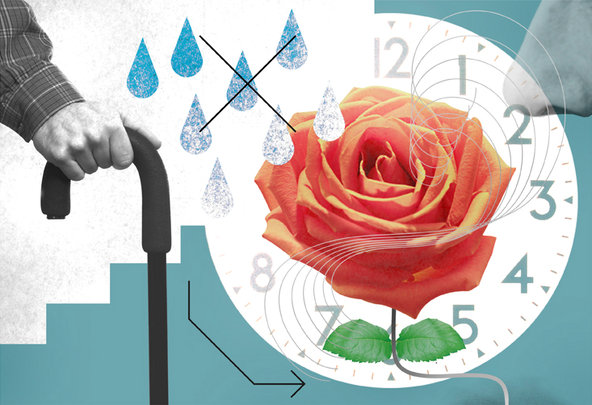
Credit Stuart Bradford
Q
How do you die of Parkinson’s disease?
A
Parkinson’s disease, a chronic, progressive movement disorder characterized by tremors and stiffness, is not considered a fatal disease in and of itself, though it may reduce life expectancy by a modest amount. It is often said that people die “with” Parkinson’s rather than “of” the disease.
“People who are healthy when diagnosed will generally live about as long as other people in their age cohort,” said James Beck, the vice president for scientific affairs at the Parkinson’s Disease Foundation, which is involved in research, education and advocacy. “It is not a death sentence.”
Since Parkinson’s generally affects people later in life — patients are typically given a diagnosis in their 60s — patients often die of unrelated age-related diseases like cancer, heart disease or stroke. But the most common cause of death in those with Parkinson’s is pneumonia, because the disease impairs patients’ ability to swallow, putting them at risk for inhaling or aspirating food or liquids into their lungs, leading to aspiration pneumonia.
Since Parkinson’s also impairs mobility and balance, those with the disease are also at high risk for falls and accidents, which can trigger a cascade of medical problems, including being bedridden and developing pneumonia, Dr. Beck said. In its advanced stages, the disease can make walking and talking difficult and cause other problems not related to movement, including cognitive impairment. Patients often cannot care for themselves and need assistance carrying out simple activities of daily living.
One long-term study followed a group of 142 Parkinson’s patients after they were given their diagnosis; their mean age at diagnosis was around 70. The researchers found that 23 percent were generally doing well 10 years later, meaning they could maintain their balance and did not have dementia. But over half of the patients in the original group had died, with the most common cause related to Parkinson’s being pneumonia. The probability of losing one’s ability to maintain balance after 10 years was calculated to be 68 percent, and the probability of developing dementia was around 46 percent.

